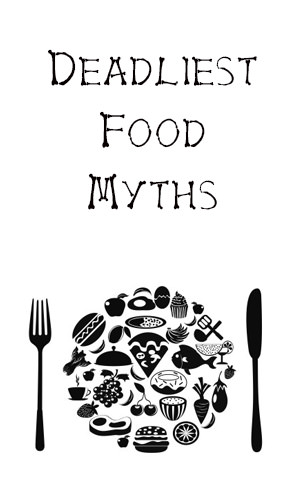
Deadliest Food Myths
Posted on 20 Dec, 2020
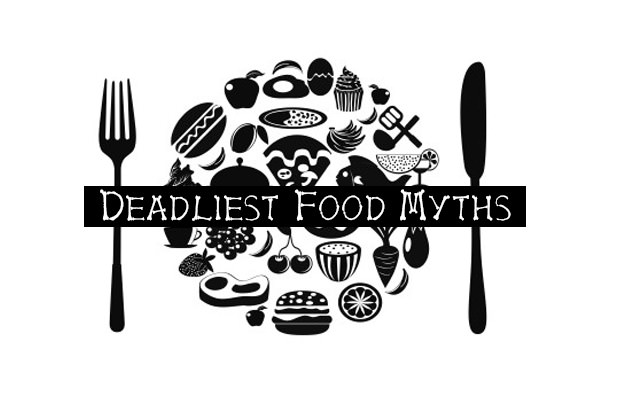
It's no secret that Americans are too fat. And it's well known that our risk of life-threatening diseases like cancer, heart disease, and diabetes is higher than in many other parts of the world. But why?
One reason is that we buy into certain dangerous myths about food, says Dr. Neal Barnard, president of the Physicians Committee for Responsible Medicine and adjunct associate professor of medicine at George Washington University School of Medicine.
Keep reading to see Dr. Barnard's list of the 15 most dangerous food myths - and what you can do to eat a healthier diet.
Myth: Kids Need to Drink Cow's Milk
 Parents often insist that their children drink milk, but why? Kids who don't drink cow's milk are just as healthy as those who do, studies show. In fact, research suggests that milk-free kids may be less likely to develop colic, ear infections, and asthma.
Parents often insist that their children drink milk, but why? Kids who don't drink cow's milk are just as healthy as those who do, studies show. In fact, research suggests that milk-free kids may be less likely to develop colic, ear infections, and asthma.
The American Academy of Pediatrics doesn't recommend cow's milk for children younger than one.
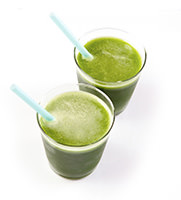 What about getting enough calcium? No problem--there's plenty of the bone-building nutrient in green leafy vegetables, beans, fortified juices, soymilk and many other foods. One notable exception is spinach. The calcium it contains is poorly absorbed by the body
What about getting enough calcium? No problem--there's plenty of the bone-building nutrient in green leafy vegetables, beans, fortified juices, soymilk and many other foods. One notable exception is spinach. The calcium it contains is poorly absorbed by the body
Myth: It's Easy to Exercise Off Extra Calories
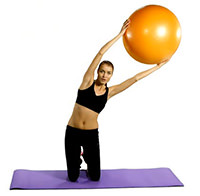 It's a bigger challenge than many people realize. Next time you're at the gym, hop on a treadmill and run for a mile, then check how many calories you've just burned. It turns out to be only about 100.
It's a bigger challenge than many people realize. Next time you're at the gym, hop on a treadmill and run for a mile, then check how many calories you've just burned. It turns out to be only about 100.
That means you'd have to run three miles to burn off the calories in just six chicken nuggets. Add a soda, and you'd have to run another 2.5 miles. A small order of fries--another two miles.
Vigorous exercise is important, but it's no substitute for making healthy food choices, particularly favoring vegetables, fruits, whole grains, and beans.
Myth: To Lose Weight, You Must Avoid Carbs
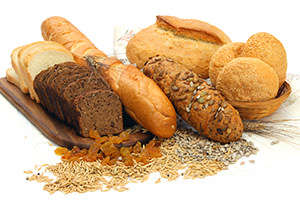 Bread, pasta, beans, and other high-carbohydrate foods are lower in calories than fatty foods, like cheese or French fries. That's one reason why people whose eat carbohydrate-based diets - people living in rural Asia and vegetarians, for example - tend to be thinner than people whose diets are based on fatty foods.
Bread, pasta, beans, and other high-carbohydrate foods are lower in calories than fatty foods, like cheese or French fries. That's one reason why people whose eat carbohydrate-based diets - people living in rural Asia and vegetarians, for example - tend to be thinner than people whose diets are based on fatty foods.
Here are the numbers: one gram of carbohydrate (that is, starch) has four calories, while a gram of chicken fat, olive oil, or fryer grease - any kind of fat - has nine
Myth: It's Essential to Drink Eight Glasses of Water a Day
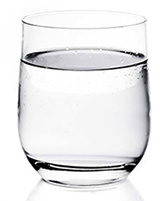 Eight glasses a day? That's an urban legend.
Eight glasses a day? That's an urban legend.
Our bodies do need plenty of water - and serious athletes might need more than most - but there's nothing magical about eight glasses.
Don't forget that water is found in foods as well as beverages
Myth: Fish is Full of Good Fat
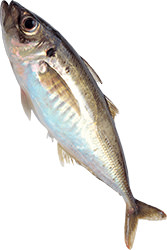 If fish full of good fat? Yes and no.
If fish full of good fat? Yes and no.
Up to 30 percent of the fat in fish is omega-3 (good) fat, which helps prevent blood clots and reduces inflammation. But the other 70 percent or more is a mixture of saturated fat that tends to raise cholesterol levels and various other fats that are little more than a source of concentrated calories.
The numbers vary depending on the type of fish. The fat in tuna, for example, is 23 percent "good" fat and 33 percent "bad" fat (the rest is a mixture of other kinds of fat with no health benefit). For salmon, the numbers are 27 percent "good" fat, and 16 percent "bad" fat, with lots of other fat thrown into the mix.
Bottom line? Fish does have good fat, but lots of the bad stuff too.
Myth: Exercise Lowers Cholesterol
 Think you can exercise away all the cholesterol you eat? Think again.
Think you can exercise away all the cholesterol you eat? Think again.
Exercise does boost "good" (HDL) cholesterol--but only slightly. It has almost no effect on "bad" (LDL) cholesterol.
Of course, exercise has many health benefits. But don't scratch elevated cholesterol level off the list, just because you work out.
Myth: Meat is the Only "Complete" Protein
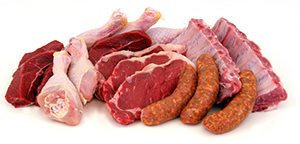 Proteins are long chains of amino acids, strung together like beads on a necklace. Your body needs a complete set of the acids in order to build body tissues. Meats contain them all, but so do most plants. Even if you never touched meat, you would get all the amino acids you need from beans, vegetables, grains, and fruits
Proteins are long chains of amino acids, strung together like beads on a necklace. Your body needs a complete set of the acids in order to build body tissues. Meats contain them all, but so do most plants. Even if you never touched meat, you would get all the amino acids you need from beans, vegetables, grains, and fruits
Myth: Organic Produce is No Better Than Conventional Produce
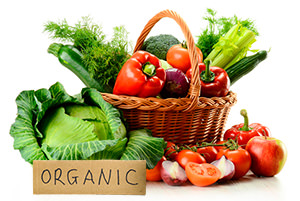 Organic and conventionally grown produce have about the same level of nutrients. But organic fruits and vegetables are less likely to have traces of pesticides and other chemicals. Parents take note, because recent studies show that certain pesticides can increase the risk for ADHD.
Organic and conventionally grown produce have about the same level of nutrients. But organic fruits and vegetables are less likely to have traces of pesticides and other chemicals. Parents take note, because recent studies show that certain pesticides can increase the risk for ADHD.
The difference is especially pronounced for peaches, apples, bell peppers, celery, and others that are commonly grown with pesticides on conventional farms.
What about simply peeling vegetables? That can reduce the level of pesticides, but it cuts down on nutrients too.
Myth: Soy Products Cause Cancer
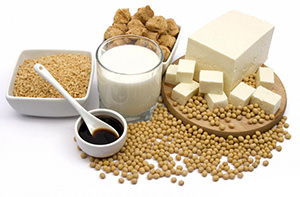 Though the connection between soy and breast cancer remains controversial, recent evidence suggests that soy products reduce the risk of breast cancer, provided they are consumed early in life.
Though the connection between soy and breast cancer remains controversial, recent evidence suggests that soy products reduce the risk of breast cancer, provided they are consumed early in life.
Studies show that women who consumed tofu, soymilk, or other soy products in their diets during adolescence have about 30 percent less risk of cancer than other women.
Among women who have been treated for breast cancer, soy products reduce the risk of recurrence. There's also some evidence to suggest that soy products can reduce the risk of prostate cancer
Myth: Olive Oil is "Good" Fat
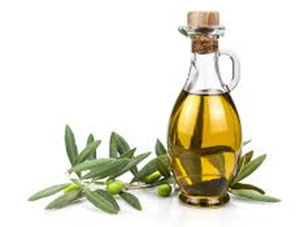 Like all oils, olive oil is a mixture of many kinds of natural fats. Almost 15 percent is "bad" (saturated) fat - the kind that raises cholesterol.
Like all oils, olive oil is a mixture of many kinds of natural fats. Almost 15 percent is "bad" (saturated) fat - the kind that raises cholesterol.
Most of the rest is monounsaturated fat, which serves no purpose other than providing unnecessary calories. Only a tiny fraction of olive oil is in the form the body actually needs.
Myth: Cravings Are Your Body's Way of Telling You What You Need
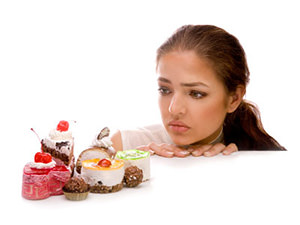 Cravings for sugar and chocolate have nothing to do with nutrient deficiencies. So why do we crave them? Because these foods trigger the release of mood boosting compounds in the brain.
Cravings for sugar and chocolate have nothing to do with nutrient deficiencies. So why do we crave them? Because these foods trigger the release of mood boosting compounds in the brain.
Once people experience these subtle brain effects, they tend to want them again and again, especially during times of stress.
Cheese and meat may also have similar opiate effects.
Myth: To Get Enough Iron, You Need Plenty of Red Meat
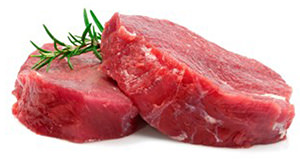 It's true that some people, such as menstruating women, don't get enough iron. But many Americans get too much. And that can trigger the production of free radicals - rogue chemicals that can contribute to cancer and speed the aging process. In addition, iron overload can increase the risk for heart disease.
It's true that some people, such as menstruating women, don't get enough iron. But many Americans get too much. And that can trigger the production of free radicals - rogue chemicals that can contribute to cancer and speed the aging process. In addition, iron overload can increase the risk for heart disease.
Green vegetables and beans provide nonhemeiron, a form that is more absorbable when your body is low in iron and less absorbable when you already have enough.
Iron in meat is heme iron, which barges into your body whether you need it or not.
Myth: A Glass of Wine Every Day Promotes Good Health
 Alcohol is a double-edged sword. People who drink modestly live longer than teetotalers, studies show. But there is a danger: Women who drink daily - even one drink per day - have a higher risk of breast cancer, compared with women who avoid alcohol entirely.
Alcohol is a double-edged sword. People who drink modestly live longer than teetotalers, studies show. But there is a danger: Women who drink daily - even one drink per day - have a higher risk of breast cancer, compared with women who avoid alcohol entirely.
The apparent reason is that alcohol disrupts folic acid, a B-vitamin known to have anticancer effects.
Myth: Margarine is Better Than Butter.
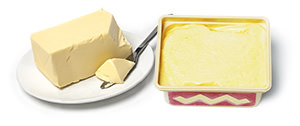 Butter is rich in cholesterol-raising saturated fat. But margarine is typically rich in trans fats, which raise cholesterol, too.
Butter is rich in cholesterol-raising saturated fat. But margarine is typically rich in trans fats, which raise cholesterol, too.
From a health standpoint, it makes sense to avoid them both. But there are exceptions to this rule. Some margarines are made with special compounds, called sterols and stanols, which lower cholesterol.
Myth: The More Protein You Eat the Better
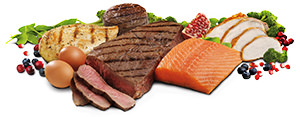 Your body needs protein to repair damaged tissues and build hormones, enzymes, and other things. But more is not necessarily better.
Your body needs protein to repair damaged tissues and build hormones, enzymes, and other things. But more is not necessarily better.
Too much protein can raise the risk for osteoporosis and kidney stones. That's because high-protein diets cause calcium to slip through the kidneys, into the urinary tract.
In people with poor kidney function - often the result of urinary infections, diabetes, or high blood pressure - high-protein diets also tend to accelerate the loss of kidney function.
These dangers appear to be limited to animal protein. The protein in beans, vegetables, and grains is not linked to health problems.
Our Favorite Books On Eating Healthy

by John Berardi

by Michael Pollan

by Jonny Bowden

by Thug Kitchen

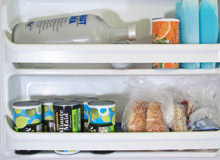 38 Things You Can Freeze To Save Time And Money
38 Things You Can Freeze To Save Time And Money Common Food Labelling Tricks
Common Food Labelling Tricks 10 Tips to Push Past a Weight-Loss Plateau
10 Tips to Push Past a Weight-Loss Plateau Benefits of the Mediterranean Diet
Benefits of the Mediterranean Diet










